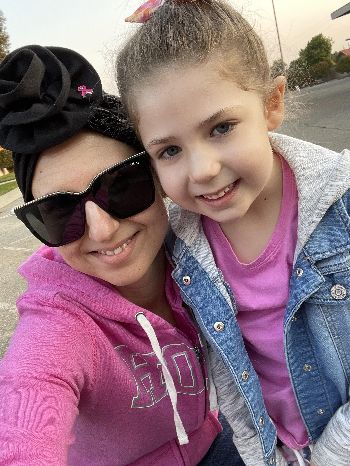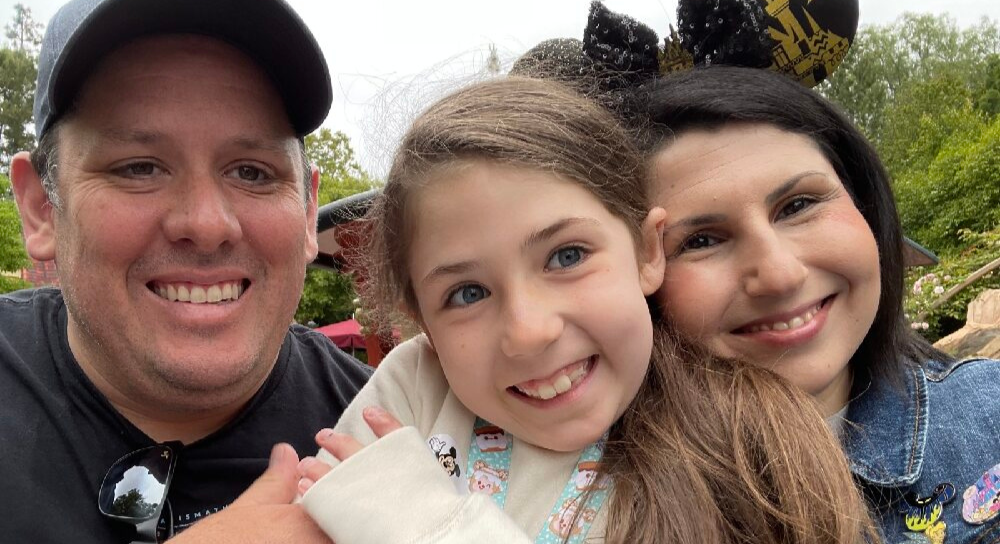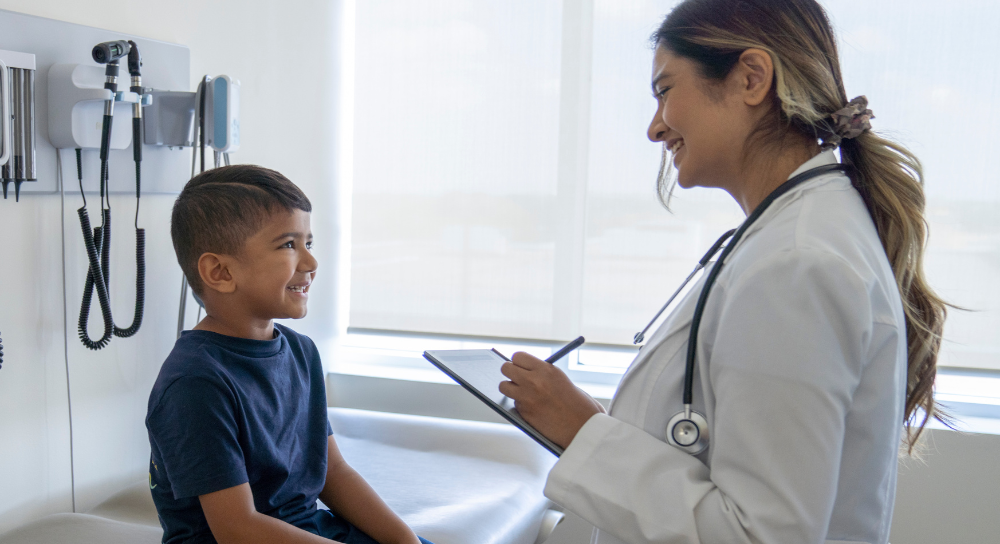Watch video of this story on MedWatch Today, Community's weekly, half-hour TV show produced in partnership with KSEE24 and CBS47.
The morning started like any other for 37-year-old Arax Martirosian as she jumped in the shower before work. Then she noticed something wasn’t right — a lump on her breast she’d never felt before.
A bit scared, she told her husband, then called her doctor.
“My doctor wasn’t able to determine what it was, so she said, ‘Let's get an ultrasound, and I'll include a mammogram, even though you're too young,’” said Martirosian.
But thinking she was “too young” for breast cancer proved wrong at her following diagnostic appointments at the Marjorie E. Radin Breast Care Center at Clovis Community Medical Center.
“After some diagnostic testing appointments, the doctor just looked at me and said those words, ‘You have cancer.’ And it was so surreal. I mean, that's not possible, right?” Martirosian said. “I'm 37 years old. And I just sat with it for a few minutes, looked over to my husband and said, ‘I have cancer.’”
Younger women with breast cancer
The American Cancer Society says for many cancers, diagnosis rates have been increasing among people younger than 50. Over the last nine years, the incidence rate of breast cancer among younger women rose 1.4%.
Martirosian was stunned at her diagnosis as her physician and nurse, Wendy, went over the results of her biopsy – lobular, invasive breast cancer, estrogen and progesterone positive, HER2-negative. Martirosian learned her nurse navigator would help her every step of the way on her journey.
“They had already scheduled me for an appointment for Community Cancer Institute’s multidisciplinary clinic that next Monday. So it was very quick,” she said.
Multidisciplinary cancer care offered under one roof
The clinic consists of specialists in imaging, diagnostics, surgery, pathology, cancer care and emotional support — all under one roof — where they meet to coordinate a custom treatment plan for each patient. Nurse navigators like Wendy assist in scheduling and managing appointments while providing care and educating patients so they can focus on getting better.
 Medical oncologist Li Ge was one of the specialists on Martirosian’s care team who helped her through her treatment.
Medical oncologist Li Ge was one of the specialists on Martirosian’s care team who helped her through her treatment.
“So breast cancer diagnoses these days are not managed by one single doctor and, not only that, it's not managed by a single specialty,” said Dr. Ge. “When people come in, they're overwhelmed. Where do I go next? What's going to happen to me? What does this mean? They have a ton of questions and somebody needs to help them understand.”
And that’s how Dr. Ge approached Martirosian’s case.
“Her diagnosis was quite complex,” Dr. Ge said. “And I think the good approach is to simplify things.”
Dr. Ge tells her patients, “One thing at a time, one step at a time,” so they don't get overwhelmed.
“Dr. Ge has been great. She's caring. She's compassionate. She's there whenever I need to ask her questions, and she takes the time to explain things,” Martirosian said. “I think explaining the diagnosis and the different treatment options that I had was important for me, and I really appreciated that.”
“My oncologist, my radiologist, my general surgeons — they all were familiar with my case. And when I saw one or the other, I really felt like I had a team behind me,” Martirosian said. “They were all in conversations about my care and my plan, and they were all on one page and they were there to support me. And I really felt empowered knowing that I could come to this one location.”
The importance of self-examination
“Every breast cancer is different. The type of breast cancer Arax had is very unique, it’s very insidious, and oftentimes can be missed by a mammogram,” Dr. Ge said. “We start mammogram screenings in the early 40s, but that’s not enough.”
Dr. Ge said Martirosian did a great job of paying attention to her body when she felt something was off.
“So many people come into me not because of their mammogram, but because they felt something, and that leads to the workup,” Dr. Ge said. “That’s a very important piece — knowing your body.”
It’s been three years since Martirosian started her journey in May 2021, and she’s so thankful for everyone who helped.
“Having a support team that was there to help me, to encourage me to get through this part of my life, this part of my journey, meant a lot to me,” she said. “They were taking care of me, which allowed me to take care of my family, my daughter, my husband, and it allowed me to be there for them, just like my medical team was there for me.”





